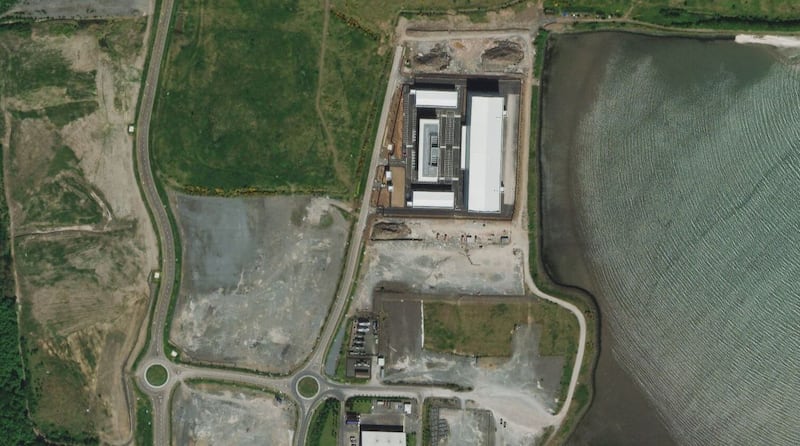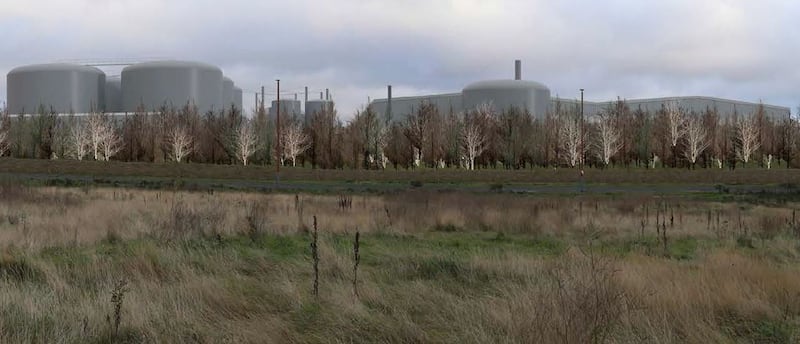A MAJOR biogas development in Belfast looks set to proceed despite concerns over its impact on the city’s burgeoning film industry.
Power NI’s parent owner Energia (formerly Viridian) is behind the £40 million anaerobic digestion plant at Giant’s Park, on the North Foreshore, which is designed to turn organic waste into methane gas, which is in turn, burned to generate electricity.
Planning officials at Belfast City Council have already recommended approving the proposal, despite the Belfast Harbour describing it as “incompatible” with its £45m plan to quadruple the size of its existing film studios next door.
Giants Park Belfast Limited (GPBL), the company selected by Belfast City Council to deliver a £170m leisure-led development on 250 acres of Giant’s Park, has also warned that it could put the planned investment at risk.
Energia said it has already secured UK Government funding under the Renewables Obligation Scheme for the 4.1MW biogas plant.
An energy generating facility already exists at Dargan Road, where gas from Belfast City Council’s former landfill is converted to power.
But as that gas depletes over time, a new source of has been sourced. Energia’s application states it will process up to 100,000 tonnes of organic material each year, split evenly into two process lines.
One will process municipal solid waste (MSW) and a second will process source separated organic (SSO) waste from brown bins.
Energia said its bioenergy plant will incorporate three of the five existing combined heat and power (CHP) engines on the site.
It’s unclear where Energia will source its organic material. It’s understood that brown bin waste from the six eastern councils that comprise Arc21 is contractually tied up until 2029.
A spokesperson for Energia said the group would not comment on any commercial matters prior to agreement.
But added that the operation “benefits from excellent links to major roads and the port and is in close proximity to organic waste feedstocks, planned to be used to create biogas and fertiliser”.

The company has also said: “The development of the bioenergy facility has the potential to attract other industrial or business uses to the North Foreshore who seek to avail of the renewable energy sources that the facility will generate.”
But two major business interests have expressed otherwise.
Belfast Harbour commissioners recently secured planning permission to significantly expand its film studio operation into the largest UK studio complex outside of the south east of England.
They said the expansion could facilitate up to 1,000 new creative industry jobs.
In an official submission to Belfast City Council, they described the bid to construct the anaerobic digestion facility next door as “incompatible with the existing film studios and may have the potential to detrimentally impact the operations of the existing film studios complex”.
One major concern is the noise aspect of the 20-month construction phase of the plant, which includes piling. In the report prepared for Tuesday’s meeting of Belfast City Council’s planning committee, officers appear to dismiss Belfast Harbour’s concerns over noise and incompatibility.
GBPL has also objected to the plant in strong terms. The company said it is drafting a master development agreement, set to include a four phased redevelopment of 250 acres of Giant’s Park.
The initial phases include hotels and a major indoor leisure venture, expected to feature a cinema, bowling and an e-sports arena. A 200-acre entertainment and wildlife park is also planned.
GBPL said the facility “raises significant concerns that could impact on the deliverability and success of the leisure-based development proposed”.
But officers said “minimal consideration” could be given to the issues raised as the proposals have yet to enter the planning process.

In response to the concerns, Energia said: “This is a well-recognised, highly sustainable and environmentally beneficial way of producing electricity. It will help Northern Ireland to meet its climate change and carbon reduction objectives, reducing greenhouse gas emissions and also avoiding food waste going into landfill.
“We are very pleased to bring forward these proposals, providing proven solutions which will meet the needs of society and the economy into the future.”







